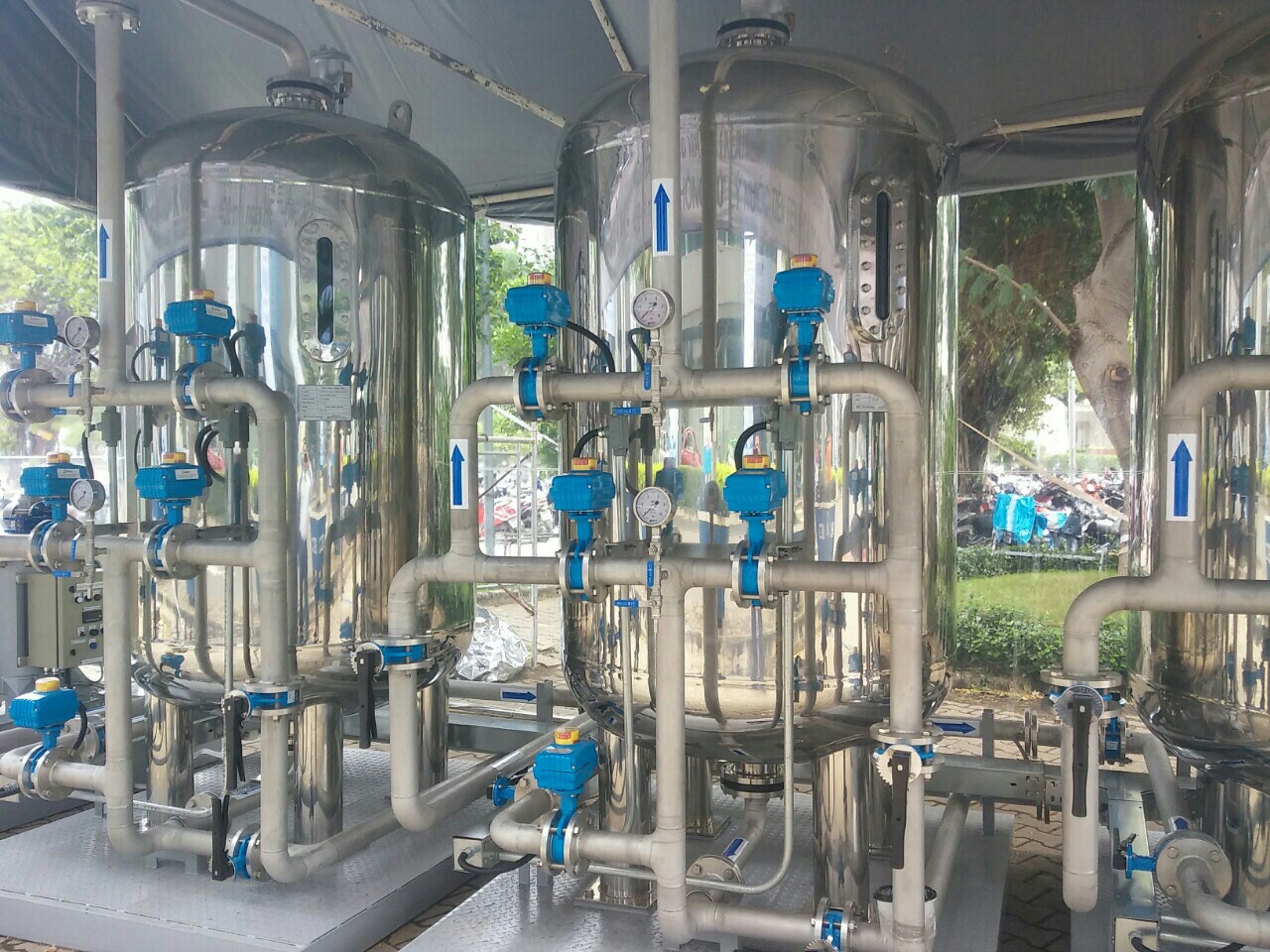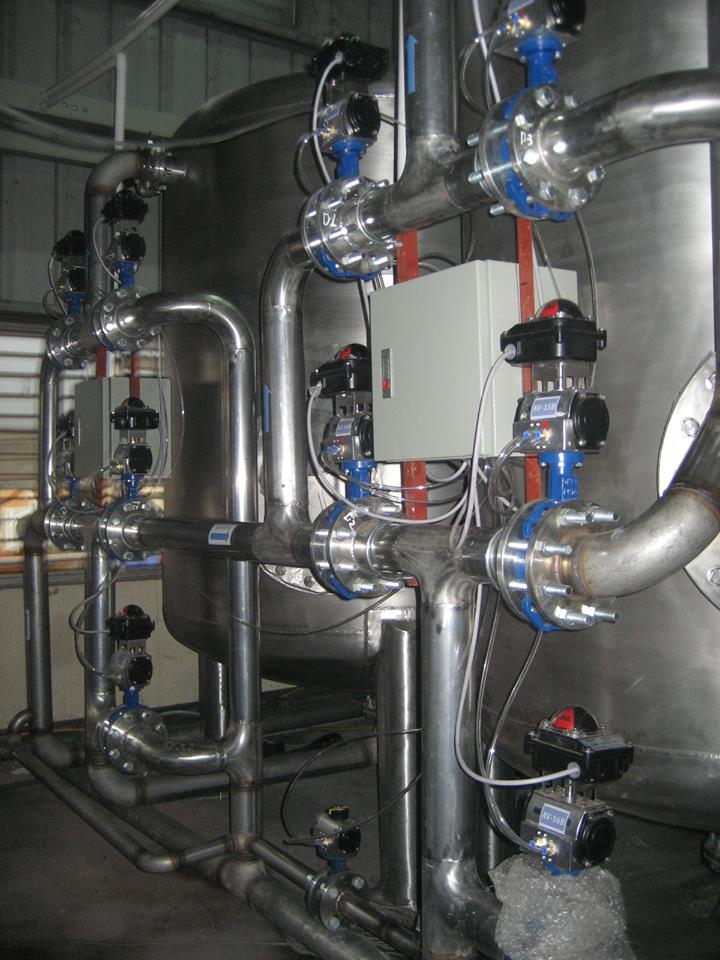Basic Stages in a Domestic Water Treatment System:
Including the following stages: Coarse Filtration – Fine Filtration – Softening
Coarse Filtration: Installed after the water meter, its purpose is to remove impurities and sediments to protect the plumbing system and household water-using equipment. Functions as a frontline protective station for the overall water treatment system installed afterward.
Filter materials include: gravel, quartz sand, manganese sand, and pH-adjusting media.
Fine Filtration: Filter materials include laterite, activated carbon, KDF, components that absorb impurities and chemicals such as chlorine, pesticides, herbicides, detergents, and particles larger than 20μm.
The system helps eliminate risks from chlorine and improves the quality of life for your family.

Saves up to 65% of water filtration rate compared to other similar products
Softening Stage in a Domestic Water Treatment System:
Installed at the final stage after the household water filtration system, the goal is to reduce water hardness to protect skin and hair from dryness, prevent scaling in water filters, and improve the durability and efficiency of heating equipment. The softener helps you save money and energy. Ion exchange resin beads can be regenerated after long-term use with table salt, extending the lifespan of the material and making it environmentally friendly.
Saves up to 45% on detergent usage (such as dishwashing liquid, soap, etc.) compared to other similar products.
Industrial Water Treatment System: Industrial RO Pure Water Filtration System
This is a water purification technology using ultrafiltration membranes with a pore size of 0.0001 micron (filters down to ions and atoms) to produce ultrapure water, based on the principle of reverse osmosis.
If classified by filtration stages, RO machines can be divided into: MF (Micro Filtration with activated carbon), UF (Ultrafiltration), Nano Filtration, and RO Filtration. Filter lines can combine two or all of the above stages.
If classified by filter materials, it can include: activated carbon, fiber-structured activated carbon, nano-activated carbon, nano-alumina, or products with composite materials made from multiple components.
The RO system developed by GE is a perfect combination of activated carbon technology and UF membranes, making it highly suitable for treating urban water, river water, groundwater, and spring water.
Specific Applications of the Water Treatment Systems We Provide:
Large-Capacity Domestic Water Filtration Systems for Industrial Use
These systems use modern equipment directly imported from the manufacturers.
Main treatment stages include: Coarse Filtration – Fine Filtration – Softening
The system operates fully automatically, with material backwashing carried out by pneumatic automatic valves, helping reduce labor costs and simplifying operation. The system is PLC-programmed, equipped with a touchscreen control panel, and continuous water quality monitoring via probes.
The Role of Ice Blocks in Daily Life and Industrial Applications
In industry, ice blocks are used for preserving and chilling food products, and are also used on fishing vessels for storing seafood.
In industry, ice blocks are used for preserving and chilling food products, and are also used on fishing vessels for storing seafood.
 Ice is commonly produced in various forms depending on usage needs, such as: block ice, flake ice, plate ice, and cube ice...
In daily life, ice is commonly used for beverages, cooling, food preservation, and refrigerating vegetables and fruits.
Ice is commonly produced in various forms depending on usage needs, such as: block ice, flake ice, plate ice, and cube ice...
In daily life, ice is commonly used for beverages, cooling, food preservation, and refrigerating vegetables and fruits.
Technological Advantages of the Water Treatment Systems Provided by Our Company:
1. Cost-effective investment and low operating costs.
2. User-friendly and environmentally friendly technology that does not require highly skilled personnel.
3. Water-saving solutions through recycled water processing.
4. Fully automated system with high operational stability.
5. Regular maintenance schedule to provide optimal technical consultancy for investors.
Contact Us Now for Free Consultation!!!


